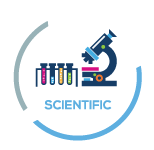PROJECT
PROJECT
The adverse health effects of air pollution are well documented. Children are more vulnerable than adults to the effects of airborne agents, for several reasons: increased physical activity, more time outdoors, the greater amount of air inhaled per unit of weight, immaturity of some organs, including the lungs, and the mechanisms cellular repair. Therefore there is a strong interest in children study of air pollution effects, to identify markers of early biological damage, predictive of chronic diseases onset in older adulthood.
The aims of the project was to study the early biological effects due to air pollutions exposure, such as DNA damage and the presence of micronuclei in buccal cells. MAPEC was a multicentre cohort study that involved 1,000 primary school children (6-8 years old) in 5 Italian cities (Brescia, Lecce, Perugia, Pisa and Turin), with different degrees of pollution.
To study the dose-effect relationship between exposure to pollutants and biological effects, air samples and biological samples were collected both in winter and in late spring (before school ending).
Children with serious illnesses and/or within the last 12 months, radiotherapy, chemotherapy and X-ray examinations, with genetic syndromes and with orthodontic appliances were excluded.
The data were analyzed by statistical multivariate analysis models. The dose-effect relationship between exposure to air pollutants, air mutagenicity and early biological effects was assessed using different regression models. A questionnaire on food was shared and utilized in order to build composite dietary pattern. The final aim of the project was to create a model to evaluate the overall risk of having a biological effect in early childhood in relation to different types of exposure.
The adverse health effects of air pollution are well documented. Children are more vulnerable than adults to the effects of airborne agents, for several reasons: increased physical activity, more time outdoors, the greater amount of air inhaled per unit of weight, immaturity of some organs, including the lungs, and the mechanisms cellular repair. Therefore there is a strong interest in children study of air pollution effects, to identify markers of early biological damage, predictive of chronic diseases onset in older adulthood.
The aims of the project was to study the early biological effects due to air pollutions exposure, such as DNA damage and the presence of micronuclei in buccal cells. MAPEC was a multicentre cohort study that involved 1,000 primary school children (6-8 years old) in 5 Italian cities (Brescia, Lecce, Perugia, Pisa and Turin), with different degrees of pollution.
To study the dose-effect relationship between exposure to pollutants and biological effects, air samples and biological samples were collected both in winter and in late spring (before school ending).
Children with serious illnesses and/or within the last 12 months, radiotherapy, chemotherapy and X-ray examinations, with genetic syndromes and with orthodontic appliances were excluded.
The data were analyzed by statistical multivariate analysis models. The dose-effect relationship between exposure to air pollutants, air mutagenicity and early biological effects was assessed using different regression models. A questionnaire on food was shared and utilized in order to build composite dietary pattern. The final aim of the project was to create a model to evaluate the overall risk of having a biological effect in early childhood in relation to different types of exposure.
-
-
-
-
-
-
-
-
16/11/2016 - CONFERENCES
49° Congresso Nazionale Società Italiana di Igiene e Medicina Preventiva
Naples, 16-19 November 2016 -
-
-
21/09/2016 - CONFERENCES
XVI National Congress of Environmental Chemistry and Cultural Heritage
Lecce, 26-29 june 2016 -
21/09/2016 - CONFERENCES
28th annual conference International Society for Environmental Epidemiology
Rome, September 1 – 4th 2016 -
21/09/2016 - CONFERENCES
52nd European Congress of the European Societies of Toxicology
Seville, September 04-07, 2016. -
21/09/2016 - CONFERENCES
International Conference of Environmental and Occupational Health
21-23 june 2016. Porto -
-
-
19/10/2015 - CONFERENCES
8th European Public Health Conference
14 - 17 October 2015. MiCo, Milan, Italy -
13/10/2015 - CONFERENCES
48° Congresso Nazionale SItI 2015
Milano Congressi (MiCo), Milan, Italy 14–17 October 2015 -
07/10/2015 - CONFERENCES
17th International Conference on Environmental Pollution and Public Health
14-15 September 2015 -
-
-
-
27/11/2014 - CONFERENCES
Abstract South Italian Mapec Workshop
Lecce, Hotel Hilton Garden Inn, 27 November 2014 -





